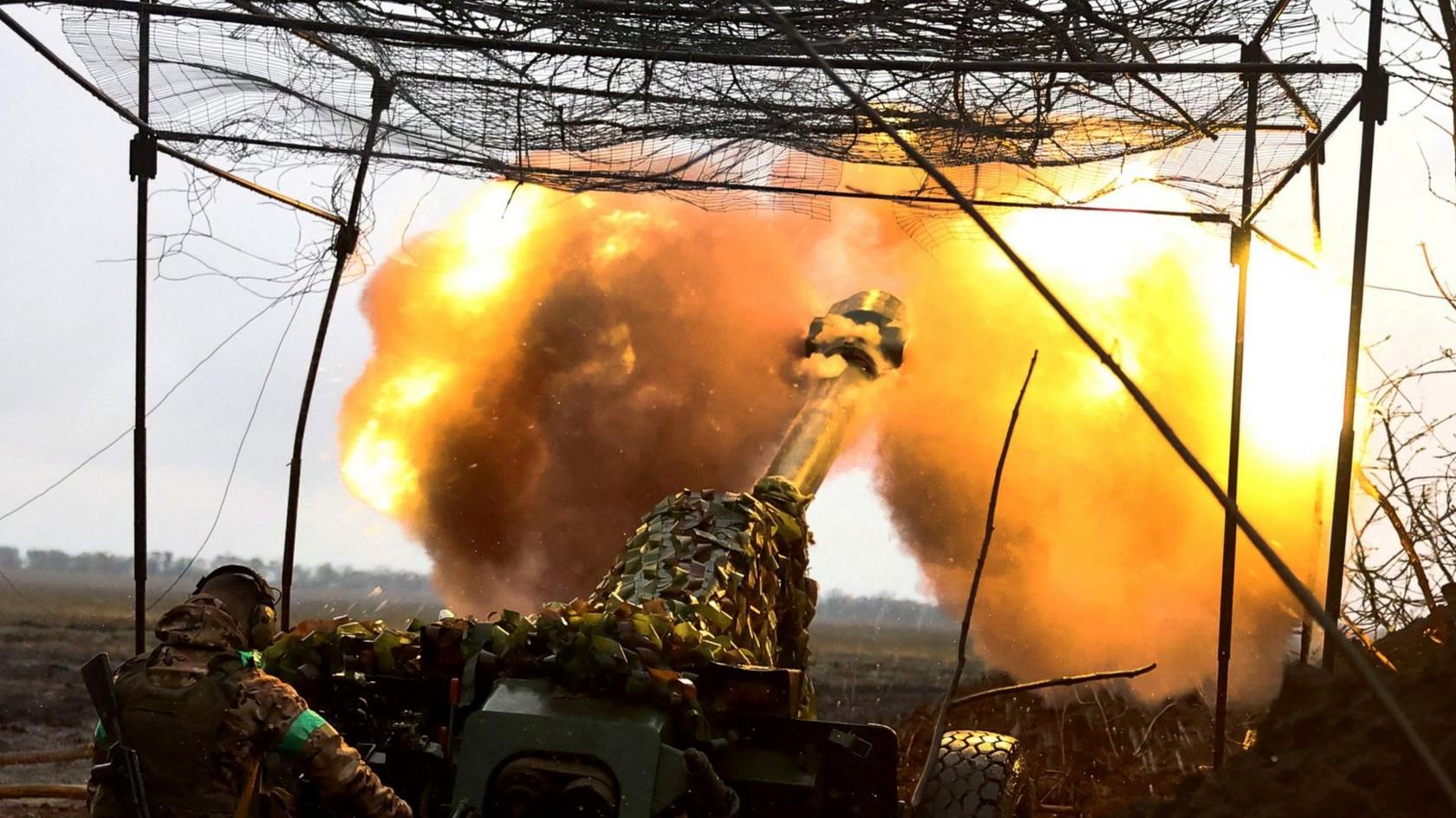Ukraine dam: Hundreds of thousands without drinking water, says Zelensky
- Published
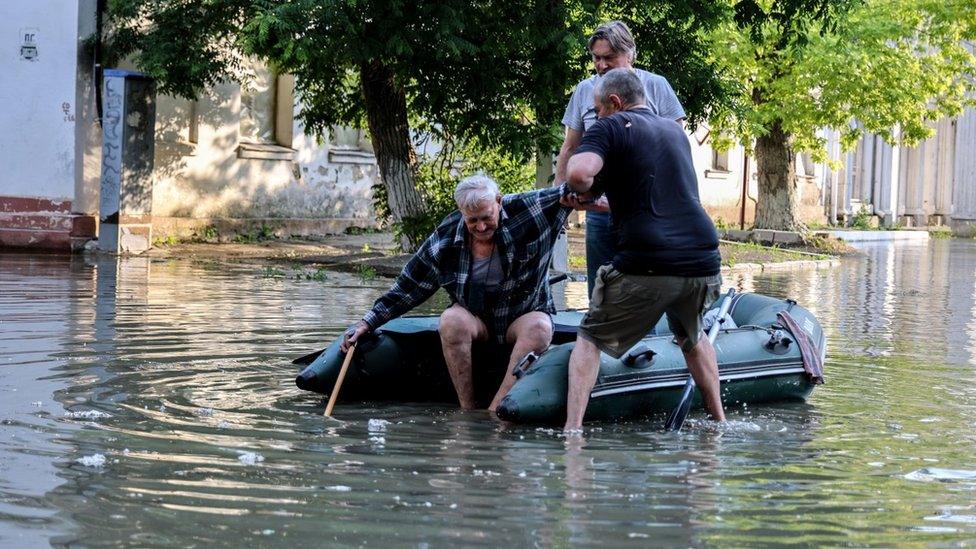
There are fears that floodwaters will rise further in the coming hours
Hundreds of thousands of Ukrainians are without normal access to drinking water after the Kakhovka dam was destroyed, President Volodymyr Zelensky has said.
Tens of thousands remain in flooded areas in southern Ukraine, he said, accusing Russia of failing to help those trapped in parts they controlled.
There are fears that water levels could rise further.
Ukraine and Russia accused each other of blowing up the dam on Tuesday, but the BBC cannot verify the claims.
Russian President Vladimir Putin called the breach "a barbaric act" in a phone call with Turkish leader Recep Tayyip Erdogan, the Kremlin said in a statement.
Mr Zelensky said he had also spoken to President Erdogan, and had stressed the "humanitarian and environmental consequences" of the disaster.
"Hundreds of thousands of people have been left without normal access to drinking water," Ukraine's president said on his Telegram channel.
"We can only help on the territory controlled by Ukraine. On the part occupied by Russia, the occupiers are not even trying to help people," he added.
As mass evacuations continued on Wednesday in Ukraine's Kherson region, satellite images highlighted widespread devastation there.
One of the photos showed a flooded port and industrial area in the regional capital Kherson, which is under Ukrainian control.

Ukrainian authorities say water levels were expected to peak by the end of Wednesday.
The UN warned the destruction of the dam would have "grave and far-reaching consequences". UN aid chief Martin Griffiths said the scale of the catastrophe would only become clear in the coming days.
Watch: Ros Atkins on… The Ukraine dam breach
Both Ukraine and Russia say they have evacuated more than 1,000 people each.
However Ukrainian officials say more than 40,000 - 17,000 in Ukraine-held territory west of the Dnipro River and 25,000 in the Russian-occupied east - need to leave.
On Wednesday morning, 23 communities remained flooded, Ukrainian TV said.
Some reports suggest that water levels may be dropping in the town of Nova Kakhovka, closest to the dam, as the vast reservoir behind it empties.

Kherson Governor Oleksandr Prokudin said Russian forces had shelled parts of the region including the city of Kherson several times, and that one person had been killed and one injured.
Nova Kakhovka's Russian-appointed mayor Vladimir Leontyev said the village of Korsunka was completely under water, with flooding up to roof level in three other villages.
The huge Kakhovka reservoir provides water to farmers and residents, as well as to the Zaporizhzhia nuclear power plant. It is also a vital channel carrying water south to Russian-occupied Crimea.
Watch: Floods and evacuations after Ukraine dam breach
There are concerns about the Zaporizhzhia nuclear power plant - Europe's largest - which uses reservoir water for cooling.
The situation there is said to be under control and there is "no immediate nuclear safety risk" for the plant, according to the International Atomic Energy Agency (IAEA).
There are also concerns about agricultural land being washed away.
Ukraine's agriculture ministry said 10,000 hectares of farmland on the Ukrainian-controlled bank of the Dnipro had been flooded, and several times more on the occupied bank.
Kherson resident Viktoriia Yeremenko, 57, said her house was destroyed in February so she moved to her son's apartment, which is now flooded.
"I'll see what happens next. I don't know what to do," she told the BBC.
Flooding was reported by the Kremlin-appointed officials in the nearby small town of Oleshky. Residents say some homes are almost under water, with elderly people sitting on roofs waiting to be evacuated.
Valery Melnik, 53, saying authorities were "not doing anything".
He told Reuters: "We're waiting until the water leaves, we will dry it out."

It is not yet clear what caused the breach, but Ukraine's military intelligence has accused Russia of deliberately blowing up the dam to halt an expected Ukrainian counter-offensive.
Russia says Ukraine carried out the attack on the dam to detract from what Moscow says are Kyiv's failures of its counter-offensive and to deprive Crimea - Ukraine's southern peninsula illegally annexed by Russian in 2014 - of fresh water.
The Geneva Conventions explicitly ban targeting dams in war.
Watch: President Zelensky shared a video of the dam on Telegram

Have you been affected by the flooding? If it is safe for you to do so you can share your experiences by emailing haveyoursay@bbc.co.uk, external.
Please include a contact number if you are willing to speak to a BBC journalist. You can also get in touch in the following ways:
WhatsApp: +44 7756 165803
Tweet: @BBC_HaveYourSay, external
Please read our terms & conditions and privacy policy
If you are reading this page and can't see the form you will need to visit the mobile version of the BBC website to submit your question or comment or you can email us at HaveYourSay@bbc.co.uk, external. Please include your name, age and location with any submission.
- Published8 June 2023
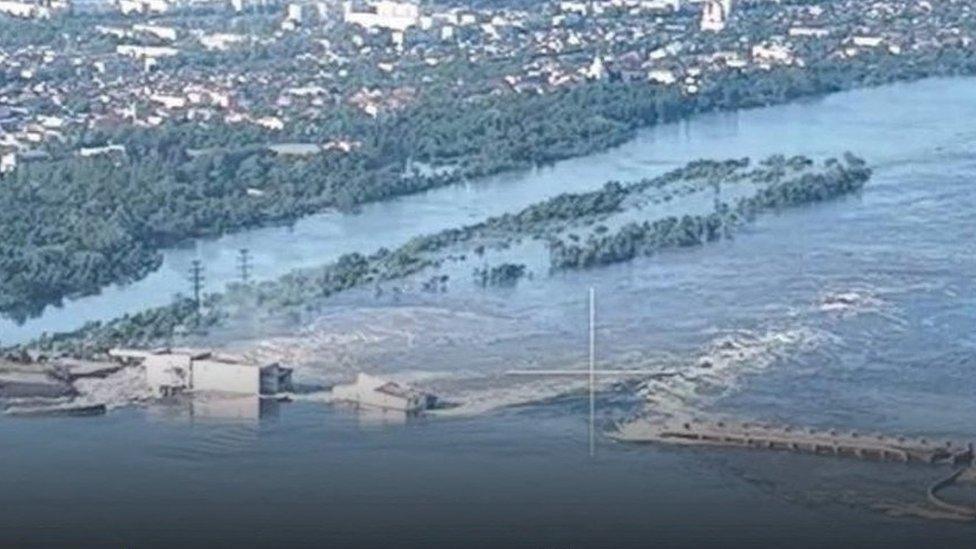
- Published6 June 2023
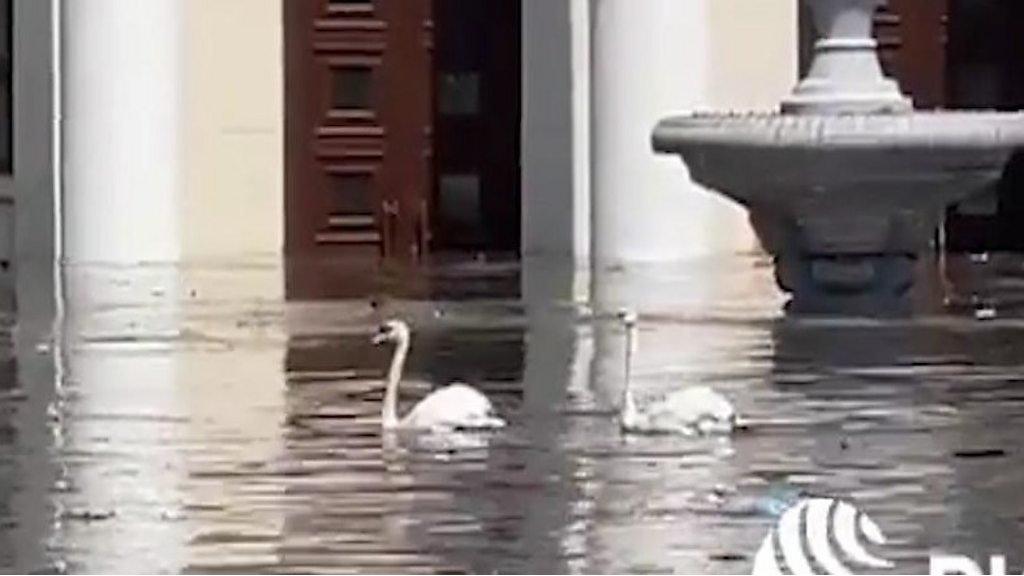
- Published6 June 2023
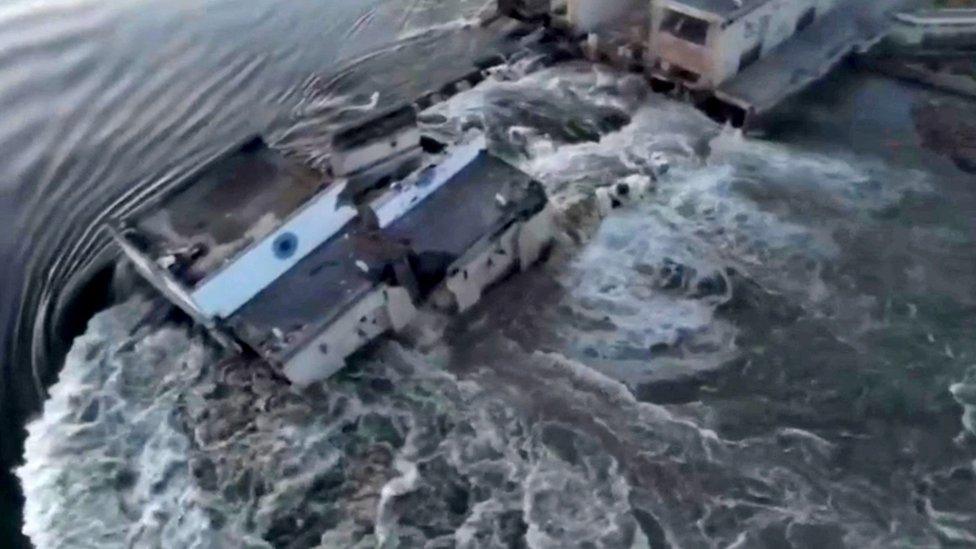
- Published6 June 2023
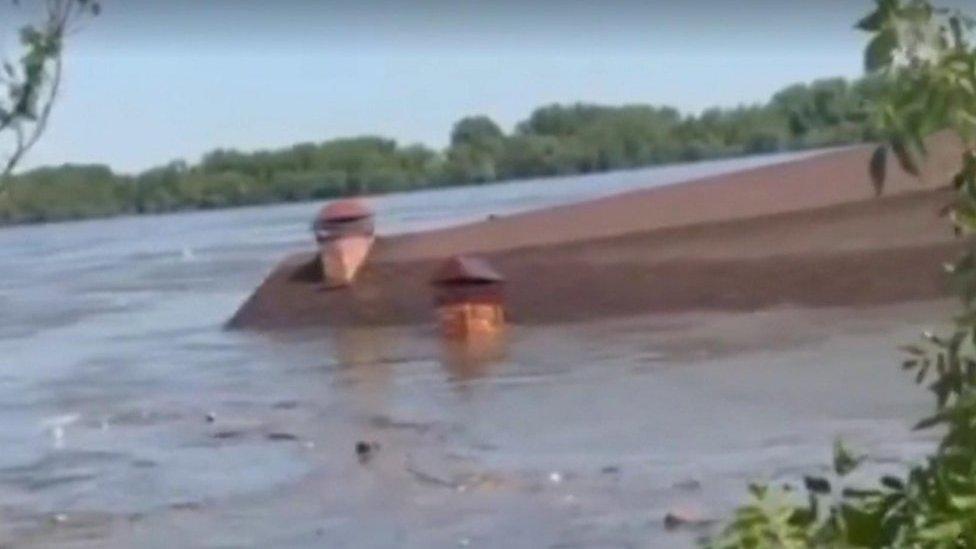
- Published6 June 2023
